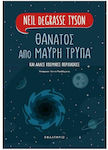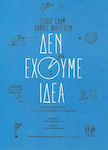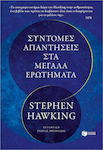Skroutz Käuferschutz
Απρονοησία και Νέμεση, Griechenlandkrise 2001-2011 Code: 2063350
- Autoren: Τάσος Αβραντίνης, Κώστας Αζαριάδης, Τάκης Αθανασόπουλος, Δημήτρης Βαγιανός, Μανώλης Βασιλάκης, Παναγής Βουρλούμης, Τάσος Γιαννίτσης, Γιώργος Β. Δερτιλής, Αρίστος Δοξιάδης, Μιχάλης Ζουμπουλάκης, Χρυσάφης Ιορδάνογλου, Παναγιώτης Κ. Ιωακειμίδης, Γιάννης Μ. Ιωαννίδης, Δημήτρης Α. Ιωάννου, Ιωάννης Δ. Ληξουριώτης, Αντιγόνη Λυμπεράκη, Μάνος Ματσαγγάνης, Μιχάλης Μητσόπουλος, Βασίλης Μοναστηριώτης, Νίκος Π. Μουζέλης, Σίμος Μπενσασσών, Μιράντα Ξαφά, Δημήτρης Παπαδημητρίου, Αθανάσιος Παπανδρόπουλος, Παρασκευάς Πασσιάς, Χριστόφορος Πισσαρίδης, Θόδωρος Σκυλακάκης, George Soros, Γιάννης Σπράος, Γιάννης Στουρνάρας, Πλάτων Τήνιος, Λουκάς Τσούκαλης, Μιχάλης Χαλιάσος, Μιχάλης Μ. Ψαλιδόπουλος
- Verleger: The Athens Review of Books
- Μορφή: Weicher Einband
- Έτος έκδοσης: 2012
- Αριθμός σελίδων: 446
- Κωδικός ISBN-13: 9789602520116
- Διαστάσεις: 21×14
Ähnliche Produkte


Wissenschaftliche Bücher
Η σκοτεινή ύλη και η εξαφάνιση των δεινοσαύρων, Die erstaunliche Kontinuität des Universums
von 14,84 €Hinzugefügt
Wissenschaftliche Bücher
Η μεγάλη περιπέτεια στο διάστημα, Von Ikarus zu Weltraumkolonien
Ad von HartoramaHinzugefügt

 Top bewertet
Top bewertetWissenschaftliche Bücher
Προς τ’ άστρα, Eine magische Reise in die Welt der Astrophysik
Ad von MykyklosHinzugefügt
 Top bewertet
Top bewertetWissenschaftliche Bücher
Δεν έχουμε ιδέα, Ein Führer durch das unbekannte Universum
Ad von E-myratHinzugefügt
Wissenschaftliche Bücher
Ο Μύθος Του Φυσιολογικού, Trauma, Krankheit und Heilung in einer toxischen Kultur
Ad von SilverProductsHinzugefügt
 Top bewertet
Top bewertet
Wissenschaftliche Bücher
Πολυκώδικας – 40 Νομοθετήματα (Μάρτιος 2024 - 16η Έκδοση)
Ad von VivliodiktyoHinzugefügt
Alle Geschäfte
Die Preise werden berechnet für:Deutschland, Andere Zahlungsoptionen
- 14,40 €
- 17,91 €
- 15,50 €
Beschreibung
The Greek crisis through the pages of the Athens Review of Books. 45 essays by 33 renowned scientists for the decade 2001-2011 of dubious prosperity, where the frenzy of debauchery prevailed. "Debauchery" in all its meanings, that is, both the unpunished squandering of European funds and loans, of public wealth, as well as the extravagance, the embezzlement, the pursuits of unbridled wealth but also of defamation of entrepreneurship, creative forces and activities, phenomena that generally fall within a -Cavafy- national life barren and insensible, that is, in the regime of Existing Populism in the country and in the minds of people during the post-dictatorship period, especially after 1981.
The first issue of the "Athens Review of Books" was released in November 2009, as the Greek crisis erupted. The major upheavals that followed explain the reason that led ARB to dedicate a significant part of its interest in economics. Two and a half years later, a corpus of dozens of essays has been formed that offer a coherent narrative and explanation of how we got here, but also where we can go from here.
Forty-five (45) of these make up the volume at hand and have a common denominator: the unprecedented economic and cultural crisis plaguing our country. The 33 authors are well-known scientists, and some of them have taken on positions of responsibility in the past, and therefore speak from experience. Therefore, the reader of the collective volume has the opportunity to compare the data, observations, conclusions, and proposals of these analysts with what our political system of power falsely and sophistically claims in order to deceive the Greek people once again and to deflect its own heavy responsibilities for the tormenting reality that the Greek citizens are experiencing and will continue to experience for many more years. From this comparison, the central meaning of the volume emerges naturally, which is nothing but the observation of this very deception.
The system of power in Greece is formed by a ruthless alliance of oligarchic nature: MPs and party leaders, who feed on public funds, media-interwoven state-subsidized entrepreneurs, guilds and trade union circuits, mass "information" media and numbed citizens, nepotism and opportunism, in short, coincidentia oppositorum, in other words: collaboration of extremes for their own benefit. It would be unforgivable naivety to think that this system has not developed to the maximum extent the instinct of self-preservation. And now that the fraud has been revealed, the bubble has burst, the system is rolling with mastery, shifting the blame to foreign "usurers" and to the entire population ("We all ate it together!"). Therefore, the most amazing achievement of the Greek system of power is that it has managed, in the consciousness of a high percentage of public opinion, to transfer to others a large part of its own responsibilities for what happened and is happening, and above all to our international funders.
Studying the texts of this volume, the reader will find the economic data and facts that prove this claim.
It will approach the real causes of Greece's bankruptcy in 2009-2010 and will find that the myth believed by many of our fellow citizens, that "the banks and markets conspired against us", is both childish and foolish. This myth is invoked for obvious reasons by those who borrowed 300 billion euros and created an annual deficit of 36 billion euros (with GDP at that time 230 billion euros) and a corresponding astronomical current account deficit. However, we must point out that the Greek crisis has the "malice" to hide lessons even for the dogmatic lovers of the markets.
The sober reader will therefore find that "loan sharks never came to take our national wealth". A loan shark is the one who asks for a higher interest rate when you are in need. On the contrary, they asked us for half the interest rate of the market. And then, while the market interest rate skyrocketed to 30%, they brought it down to 3.5%. That is, as much as France borrows today and almost half of what Italy borrows. The Europeans lent us on favorable terms, not because they are above money, but because they weighed the cost of Greek bankruptcy for the common currency and the negative consequences this development would have on the European Idea. Their decision was probably made coldly, as a constituent of their interests and based on the political realities they faced.
It will also find that the troika bears some responsibility for the failure of the program, because it did not insist on the implementation of the memorandum it had dictated. On the contrary, it succumbed to the reactions of the two parties in power who have successfully tried so far to maintain their mechanisms in the public sector, in organizations and in DEKO. The state-fed left - because it also participated in the exercise of power to the extent of its percentage - stood as an accomplice of the two parties, both the dogmatic and the so-called anti-establishment, as well as the pseudo-modernist.
Unfortunately, this volume is destined but cannot answer the crucial question: will our corrupt political system of power ultimately survive? Or will the basic law prevail that you can deceive many people for a while, but you cannot deceive everyone for all time? - and we have the impression that a ray of light is discernible in the deep darkness. [...]
(from the preface by Manolis Vasilakis)
Spezifikationen
- Genre
- Astronomie
- Sprache
- Griechisch
- Untertitel
- Griechenlandkrise 2001-2011
- Format
- Weicher Einband
- Anzahl der Seiten
- 446
- Veröffentlichungsdatum
- 2012
- Abmessungen
- 21x14 cm
Wichtige Informationen
Spezifikationen werden von offiziellen Hersteller-Websites gesammelt. Bitte überprüfen Sie die Spezifikationen, bevor Sie Ihren endgültigen Kauf tätigen. Wenn Sie ein Problem bemerken, können Sie melden Sie es hier
Bewertungen
Meisterwerk. Umfassend. Es ist unglaublich interessant. Du liest es wirklich leicht, gekennzeichnet von Energie und Klarheit in einem solchen Maße, dass du gar nicht bemerkst, wie schnell du die Seiten wechselst.
Übersetzt von Griechisch ·- Papierqualität
- War das Buch leicht zu lesen?
- Verständnis des Themas
- War es durchgehend interessant?
- Mir hat der Schreibstil gefallen
- Ich würde ein Buch desselben Autors lesen
- Ich würde es zum Lesen empfehlen
Haben Sie diese Bewertung hilfreich gefunden?













































































































